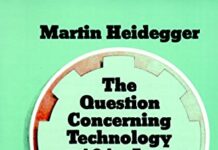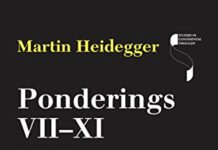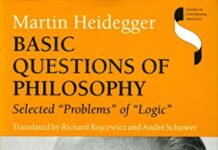
Ebook Info
- Published: 2010
- Number of pages: 239 pages
- Format: PDF
- File Size: 3.94 MB
- Authors: Martin Heidegger
Description
Phenomenology of Intuition and Expression is a crucial text for understanding the early development of Heidegger’s thought. This lecture course was presented in the summer semester of 1920 at the University of Freiburg. At the center of this course is Heidegger’s elaboration of the meaning and function of the phenomenological destruction. In no other work by Heidegger do we find as comprehensive a treatment of the theme of destruction as in this lecture course. Culminating in a destruction of contemporaneous philosophy in terms of its understanding of ‘life’ as a primal phenomenon, this lecture course can be seen to open the way towards a renewal of the meaning of philosophy as such. This hugely important philosophical work is now available in English for the first time.
User’s Reviews
Reviews from Amazon users which were colected at the time this book was published on the website:
⭐In this lecture course, Heidegger exemplifies one of the ways of doing phenomenology, which he calls phenomenological destruction and is also his program in later texts (as well as serving as a basis for Derrida’s deconstruction). Basically, it means exploring the preconceptions of different philosophical traditions / different ways of putting a problem and showing they are not radical enough, they don’t spring from a primordial / originary experience. Its purpose is “to lead philosophy from out of its alienation back to itself” (Kindle Locations 321-322).This exploring of preconceptions is accomplished by the means of a phenomenological clarification.In the two main sections of this book / course, Heidegger explores in this way two groups of problems, important for his philosophical contemporaries (but that haven’t lost their importance for the contemporary debates): the problem of the a priori (and its relation with the historically contingent) and the problem of subjectivity / life (mainly, the way lived experience can be understood by philosophy).So, in the first part, Heidegger clarifies the meaning of the concept of history in the context of the philosophies of culture (Spengler, Simmel, etc.) and in the second – the concept of subjectivity / lived experience in Natorp and Dilthey.Neither of these two problematics (in none of the author he examines) is put in radical enough terms for him; the criterion of radicality is their capacity to account for the concrete, factical, historical Dasein – and their springing not only from a theoretical attitude towards life, but from the personal factical existence of the philosopher.Of course, this is a mere outline / summary of the book.The details are very interesting, and Heidegger’s strategies of “destruction” too.What is achieved in the end?”In this way, only negations arise from our problems, it is a constant nay saying. It would be a misunderstanding to now expect a big ‘yes’ in the end. The destruction is rather continued; it simply does not have a bad aftertaste. It is the expression of philosophy, provided that in the motive of philosophy lies the securing, or rather, the making insecure, of one’s own Dasein. In this continuation of the destruction from out of the tendency to attain and primordially determine the primordial, one is led to primordially and radically grasp the idea of phenomenology, also to understand the non-external, because the understanding of the phenomenological basic posture shows that in it the primordial motives of philosophizing itself can be brought to life.” (Kindle Locations 1757-1761)
⭐Only by following step by step starting with his earliest writings and so fixing the concrete and easily understandable context of how Heidegger came literally to his way of thinking can you even begin to understand what he was doing later on and why he did it THAT way!
⭐
Keywords
Free Download Phenomenology of Intuition and Expression: Theory of Philosophical Concept Formation (Athlone Contemporary European Thinkers) 1st Edition in PDF format
Phenomenology of Intuition and Expression: Theory of Philosophical Concept Formation (Athlone Contemporary European Thinkers) 1st Edition PDF Free Download
Download Phenomenology of Intuition and Expression: Theory of Philosophical Concept Formation (Athlone Contemporary European Thinkers) 1st Edition 2010 PDF Free
Phenomenology of Intuition and Expression: Theory of Philosophical Concept Formation (Athlone Contemporary European Thinkers) 1st Edition 2010 PDF Free Download
Download Phenomenology of Intuition and Expression: Theory of Philosophical Concept Formation (Athlone Contemporary European Thinkers) 1st Edition PDF
Free Download Ebook Phenomenology of Intuition and Expression: Theory of Philosophical Concept Formation (Athlone Contemporary European Thinkers) 1st Edition




